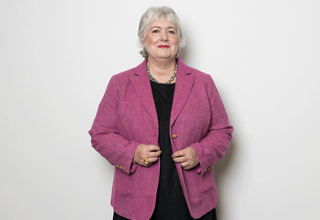What Makes Up 'Capital Value' - Court of Appeal

What Makes Up 'Capital Value' - Court of Appeal
Monday 24 July, 2023
Rates are set under the Local Government (Rating) Act 2002 (LGRA) based on the capital value or the land value of the rating unit. Annual value rating is also available under the LGRA but no longer used, whereas capital value rating has gained in popularity over land value rating in recent years.
Gold = $$$$
The Rating Valuations Act 1998 (RVA) defines both ‘capital value’ and ‘land value’, but it was the definition of capital value that was of interest in the recent Court of Appeal case of Bushmere Trust v Gisborne District Council [2023] NZCA 290 [11 July 2023]. In that case the Trust, as landowner, was aggrieved because the Council had included the value of a licence to grow SunGold kiwifruit in the capital value of its land. The licence issued by Zespri to the Trust takes the sale price of kiwifruit produced under it from around $400,000 per ha for green kiwifruit to around $1 million per ha for SunGold kiwifruit. Previously valuation providers and the Valuer-General had deducted the separate SunGold licence value from the market value of property to obtain the capital value, but in 2020 those parties agreed that this approach was inconsistent with the requirements of the Rating Valuations Act.
Objection and appeals
The inclusion of the value of the SunGold licence in the capital value of the Trust’s property substantially increased the rates payable by the Trust. The Trust objected to the Land Valuation Tribunal, which found in its favour. On appeal, the High Court found in favour of the Council, determining that:
- The capital value of land is a proxy for fair market value.
- The value of the Trust property was enhanced by the SunGold kiwifruit licence.
- The value of improvements was not relevant when determining the capital value of land.
- The capital value of the Trust property includes the SunGold kiwifruit licence.
The Trust then appealed to the Court of Appeal, which had to determine if the SunGold kiwifruit grown on the property pursuant to the Zespri licence issued affected the capital value of the Trust’s land.
What is ‘capital value’?
The capital value of land is defined in the RVA as meaning:
“…subject to sections 20 and 21, the sum that the owner’s estate or interest in the land, if unencumbered by any mortgage or other charge, might be expected to realise at the time of valuation if offered for sale on such reasonable terms and conditions as a bona fide seller might be expected to require”.
Section 21 of the RVA concerns the value of a rating unit that is subject to a lease and was not relevant to the Trust’s case. But section 20 of the RVA excludes from any valuation the value of any trees except “fruit trees, nut trees, vines, berryfruit bushes, or live hedges”.
Effect of SunGold Licence
The Court of Appeal confirmed that in accordance with the statutory definition of capital value, the kiwifruit vines and supporting structures on the Trust’s property could form part of the capital value of the property. The issue to be resolved was whether the capital value should also reflect the increased market value of the land arising from the existence of the SunGold licence.
The Trust argued that it ought not to do so, arguing that the licence issued by Zespri is personal to the Trust, does not run with the land, and so cannot be part of the Trust’s estate or interest in the land. Further, it said that capital value was made up of the value of the land and improvements to land, and that the SunGold licence was not an improvement. Finally, the Trust argued that the capital value methodology involved “placing a value on components of the definition of capital value” to achieve a uniform approach to rating properties rather than establishing a “true” or “market” value of property.
The Court of Appeal agreed with the Trust that capital value and market value were not synonymous concepts but pointed out that the High Court had not said that they were, but rather that capital value is a proxy (but not an exact proxy) for fair market value. It cited with approval the Court’s decision in Valuer-General v Mangatu Inc [1997] 3 NZLR 641 in which it was stated that an owner’s estate or interest in land does not equate to a valuation of the pure fee simple, and referred to a case where the enhancement of a property through obtaining a building consent influenced the capital value of the land. It also cited the reasoning in a line of authorities holding that the value of property may be enhanced by a liquor licence having been issued for the premises.
The Court found that once grafted or planted, as permitted by the licence, the SunGold kiwifruit vines form an integral part of the land. Although the licence is personal property, in the absence of any exclusion from the statutory definition, the vines grown pursuant to that licence are a component of ‘capital value’ under section 20(1) of the RVA. It therefore concluded that the SunGold kiwifruit vines formed part of the capital value of the land, and, that to then calculate and deduct (from the capital value of the property) a sum that reflected the value of the licence, would ignore the nature of the actual vines grown on the land and defeat the purpose of the statutory definition of capital value. Accordingly, the capital value of the land for rating purposes encompassed the value attributable to the fact that the kiwifruit vines were grown pursuant to the SunGold licence.
Comment
Although limited on its facts to the effect on value for rating purposes of the SunGold licence, the manner in which the Court of Appeal approached this case may well have implications for other types of licence, authorities, or yet to be implemented consents that impact on the use, and therefore, the value of land.





